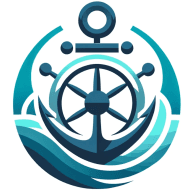6 Exciting Maritime Supply Chain Initiatives Shaping the Future
The maritime supply chain is on the brink of a technological revolution that promises to redefine efficiency and security. From the integration of data-driven transparency in freight forwarding to the adoption of blockchain for secure operations, the industry stands at the cusp of transformative change. These initiatives not only enhance operational efficiency but also pave the way for a more sustainable and autonomous maritime future.
- Make Freight Forwarding Transparent and Data-Driven
- Support Advancements in Autonomous Vessels
- Embrace Blockchain for Secure Maritime Operations
- Enhance Efficiency with Smart Ports
- Advocate for Sustainable Maritime Practices
- Encourage AI Integration in Maritime Logistics
Make Freight Forwarding Transparent and Data-Driven
We're particularly excited about our initiative to make freight forwarding more transparent and data-driven through modernized processes. While many talk about digital transformation, we're focused on something more fundamental: reimagining how freight forwarding should work in today's world, where real-time visibility and adaptability aren't just nice-to-haves, they're essential.
This shift goes beyond just digitizing paperwork - it's about creating a new standard where shippers can make informed decisions based on actual data rather than industry conventions or gut feelings. For example, we're seeing how this approach helps companies respond more effectively to disruptions, whether it's port congestion, weather events, or geopolitical changes affecting traditional routes.
We believe this will shape the future of maritime shipping by making the entire process more resilient and intelligent. As more companies adopt this data-first mindset, we expect to see a fundamental change in how global supply chains operate - moving from reactive problem-solving to proactive optimization. This isn't just about efficiency; it's about creating a more sustainable and reliable global trading system that can better serve businesses of all sizes.
Support Advancements in Autonomous Vessels
Autonomous vessels are transforming the shipping industry by navigating routes and avoiding obstacles without human intervention. This technology increases safety by minimizing human errors, which are a significant cause of maritime accidents. These vessels can operate around the clock without rest, significantly boosting productivity.
The efficiency gains from autonomous ships could lead to reduced shipping costs, benefiting consumers with lower product prices. The success of these vessels could inspire further technological innovations in the maritime sector. It's important to support advancements in autonomous vessels to ensure a safer and more efficient future for shipping.
Embrace Blockchain for Secure Maritime Operations
Blockchain technology is making waves in the maritime supply chain by simplifying documentation and tracking processes. Traditional shipping requires a lot of paperwork, which can be slow and prone to errors. By using blockchain, all transactions and documents can be securely stored and accessed in a decentralized manner.
This not only speeds up the process but also reduces the chances of fraud and mistakes. Improved transparency helps build trust between different parties involved in shipping. Embracing blockchain in the supply chain can lead to more efficient and secure maritime operations.
Enhance Efficiency with Smart Ports
Smart ports are enhancing efficiency and connectivity within the maritime supply chain. These ports use advanced technologies like IoT and big data analytics to optimize cargo handling and improve turnaround times. By streamlining operations, smart ports reduce congestion and downtime, leading to faster shipping processes.
Enhanced connectivity allows for better communication between all stakeholders, ensuring a smoother supply chain. These improvements can significantly impact global trade by making shipping more efficient. Supporting the development of smart ports will help cultivate a more connected and efficient maritime industry.
Advocate for Sustainable Maritime Practices
Sustainable practices are becoming crucial in the maritime industry to reduce environmental impact. Shipping traditionally relies on fossil fuels, contributing to pollution and climate change. By adopting greener practices, such as using alternative fuels and enhancing energy efficiency, the industry can significantly cut its carbon footprint.
These changes are not only good for the environment but can also lead to cost savings in the long term. Implementing sustainable solutions is vital for the health of our planet and the future of the shipping industry. Advocating for sustainable maritime practices is necessary to protect our oceans and environment.
Encourage AI Integration in Maritime Logistics
AI-powered optimization is transforming routing and logistics in the maritime supply chain. By analyzing vast amounts of data, AI systems can determine the most efficient routes, reducing travel time and fuel consumption. This leads to fewer delays and lower operational costs for shipping companies.
Additionally, AI can predict and mitigate potential issues, such as weather disruptions or mechanical failures, enhancing reliability. The use of AI in logistics ensures a more streamlined and cost-effective supply chain. Encouraging the integration of AI technologies will revolutionize maritime logistics, making it more efficient and reliable.


